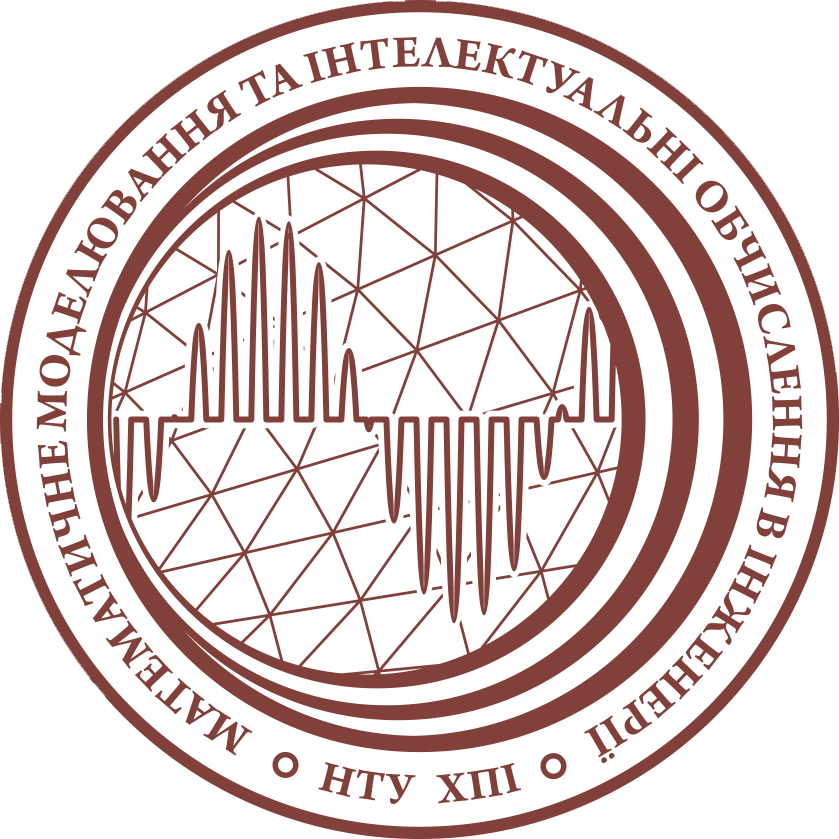Specialty F1 Applied Mathematics, educational program: “Computer and mathematical modeling”, in MME department (NTU “KhPI”), aims to provide training of specialists in the field of applied mathematics who are able to formulate, generalize and solve practical problems in their professional activities using fundamental and special mathematical approaches, methods, algorithms and software tools.
The educational programs and archive of EP`s is available on the website of the department of quality assurance of education of NTU “KhPI”
The educational programs and archive of EP`s is available on the website of the department of quality assurance of education of NTU “KhPI”
CHARACTERISTICS OF THE EDUCATIONAL PROGRAM
Features:
The educational program “Computer and Mathematical Modeling” is structured to provide students with: fundamental mathematics; algorithmizing and programming; computational mathematics and data analysis, mathematical basics of mechanics and engineering simulations. Elective part of the program is also has a professional section that is structured within the same groups (blocks) of disciplines. These blocks enlarge professional skill, and allows students to choose technology stack.
The relevant structural parts of the educational program form a logical system where mathematical competencies and IT skills are applied to practical tasks of modeling and analyzing engineering and information systems.
STRUCTURAL AND LOGICAL SCHEME OF EP
EDUCATIONAL COMPONENTS EP (SYLLABUS)
| Code n/a (w-winter, s-summer, cp – ECTS credits) | Components of the educational program (disciplines, projects / works, practice, qualification work) | ||
| WP 1 (2s 4cp) | History and culture of Ukraine | ||
| WP 2 (2s 3cp) | Ukrainian language (for professional purposes) | ||
| WP 3 (1w, 2s, 3w, 7w, 8s 12cp) | Foreign language | ||
| WP 4 (4s 3cp) | Philosophy | ||
| WP 5 (3w 3cp) | Jurisprudence | ||
| WP 6 (6s 3cp) | History of science and technology | ||
| WP 7 (1w 4cp) | Physics | ||
| WP 8 (1w 5cp) | Mathematical analysis. Part 1. | ||
| WP 9 (2s 5cp) | Mathematical analysis. Part 2. | ||
| WP 10 (1w, 2s, 3w, 4s, 5w, 6s 12cp) | Physical education | ||
| SP 1 (1w 3cp) | Introduction to the specialty. Introductory practice. | ||
| SP 2 (1w 4cp) | Analytical geometry | ||
| SP 3 (1w 6cp) | Algorithmization and programming | ||
| SP 4 (2s 4cp) | Linear algebra | ||
| SP 5 (2s 5cp) | Object-oriented programming and design | ||
| SP 6 (2s 6cp) | Discrete mathematics | ||
| SP 7 (2s 3cp) | Fundamentals of occupational safety and human health | ||
| SP 8 (3w 5cp) | Theoretical and analytical mechanics | ||
| SP 9 (3w 5cp) | Differential equations | ||
| SP 10 (3w 4cp) | Databases organization | ||
| SP 11 (3w 5cp) | Mathematical logic, theory of algorithms and data structures | ||
| SP 12 (4s 5cp) | Computational methods | ||
| SP 13 (4s 4cp) | Probability theory | ||
| SP 14 (4s 6cp) | Special chapters of higher mathematics | ||
| SP 15 (5w, 7w 9cp) | Project. | ||
| SP 16 (5w 5cp) | Methods of optimization | ||
| SP 17 (5w 4cp) | Mathematical statistics | ||
| SP 18 (5w 5cp) | Theoretical foundations of modeling physical processes. Part 1. | ||
| SP 19 (6s 5cp) | Theory of dynamic processes. Part 1. | ||
| SP 20 (6s 4cp) | Software tools for modeling physical processes. Part 1. | ||
| SP 21 (6s 4cp) | Theoretical foundations of modeling physical processes. Part 2. | ||
| SP 22 (6s 4cp) | Mathematical methods of artificial intelligence theory | ||
| SP 23 (7w 4cp) | Theory of dynamic processes. Part 2. | ||
| SP 24 (7w 5cp) | Software tools for modeling physical processes. Part 2. |
| PP1 (8s 6cp) | Pre-graduation practice |
| Certification | |
| GDP1 | Discipline in IT – direction 1 |
| GDP2 | Technical discipline |
| GDP3 | Discipline in the field of “Modeling 1” |
| GDP4 | Discipline in the field Mathematics |
| GDP5 | Discipline in the field of Data Analysis |
| GDP6 | Discipline in the field of “Modeling 2” |
| GDP7 | Discipline in the field of Artificial Intelligence |
| GDP8 | Discipline of mechanical direction 1 |
| GDP9 | Discipline in IT – direction 2 |
| GDP10 | Discipline of mechanical direction 2 |
| GDP11 | Discipline in the field of “Modeling 3” |
| GDP12 | Discipline of economic direction |
| VS 1 | Discipline 1 |
| VS 2 | Discipline 2 |
| VS 3 | Discipline 3 |


